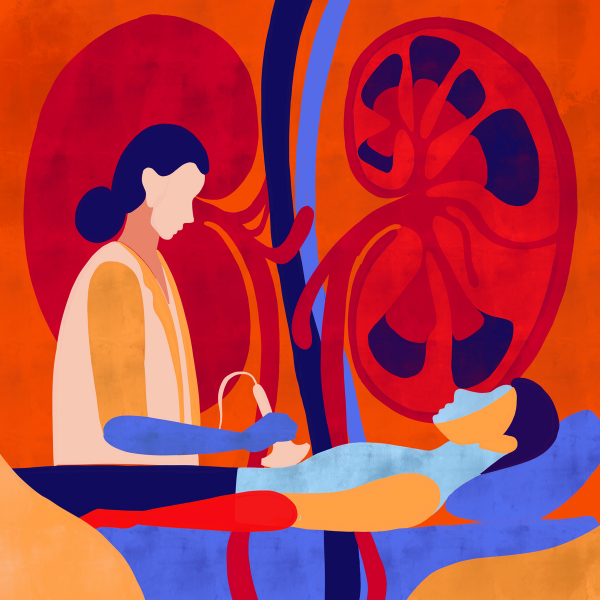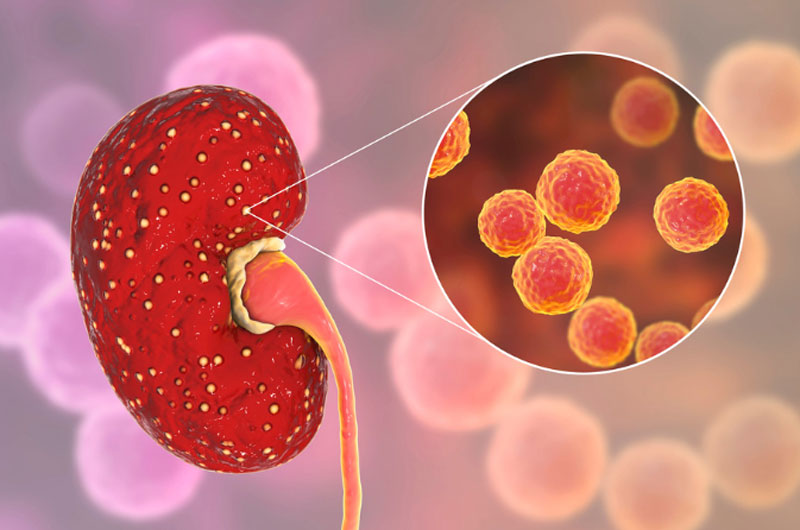
Nephrology – Kidney and Renal Diagnosis, Symptoms and Treatment
The kidneys are two bean-shaped organs located along both side of your spine, behind your ribs and behind your belly button. Each kidney is about the size of a huge fist and is around 4 to 5 inches long.
What is nephrology and who is a Nephrologist?
Nephrology is a branch of medical science that deals with diagnosis of kidney diseases and its treatment.
Kidney is a bean shaped organ on both sides of the spine in a human body , below the chest .Kidney is responsible for blood purification, waste management,controlling electrolytes and excess water in the body and dispersal of toxins via urine .
The person who is qualified in renal treatment is called a nephrologist.
Yes, you are correct ! A Nephrologist doesn’t perform surgery.
What does a nephrologist do ?
When you book an appointment with a nephrologist at Medharbour, Gurgaon he would enquire you about any history in chronic kidney disease (CKD) or kidney failure ,order tests such as kidney function test (KFT) , various blood tests and urine test and treat you accordingly.
In addition, they also recognize how kidney conditions affect other parts of your body, including:
- Autoimmune diseases.
- Cardiovascular disease.
- High blood pressure
What are the symptoms of renal disease/kidney disease?

Kidney forms part of urinary system and plays a vital role at keeping toxins at bay .
It also helps regulate blood pressure, aids in production of red blood cells and produces an active form of vitamin D .
Following are the symptoms that shouldn’t be ignored for kidney ailments:
- Diabetes: if you have high blood sugar levels you are at a higher risk of kidney failure
- High blood pressure: high BP can also cause a damage to your kidney as the blood vessels lose their elasticity which inhibits blood and oxygen flow to the kidneys
- Changes in urine : if you have changes in the color of your urine, pee often or pee less than usual you may have a hidden kidney disease.
- Brain fog : If you have brain fog , you tend to forget easily , find difficulty in focusing it may be a sign of kidney problem
- Sudden pain in urinary tract : In many cases of kidney stones , when the stone passes through the urinary tract there can be sudden sharp pain .
- Foamy urine : frothy or foamy urine is yet another sign of kidney issues.You might also find blood in urine.
- Swelling : you may find swelling in your legs ,ankle or feet due to fluid retention.
What are the common diseases or conditions a Nephrologist treats?
Nephrologist deciphers and treats all problems related to kidneys except performing surgery . Some of the common problems , cured by nephrologists are :
- Kidney problems associated with diabetics
- Kidney problems in people with blood pressure issues
- Kidney failure.
- Cystic kidney disease.
- Kidney stones.
- Nephrotic syndrome.
- End-stage renal (kidney) disease.
- Hemolytic uremic syndrome.
- Urinary tract infections (UTIs).
- Kidney infections.
- Hyponatremia and other electrolyte disorders.
- Toxic overdoses that requires dialysis.
- Glomerulonephritis (GN).
Dialysis, kidney biopsy and kidney transplant: summary

Dialysis: If your kidney doesn’t work properly, dialysis performs the functions of your kidney. During dialysis, a machine removes your blood, filters out waste products and excess fluid and returns your blood to your body.
Kidney biopsy:Your nephrologist will take a small tissue sample from your kidneys to help diagnose the precise condition of your kidney.
Kidney transplant: During a kidney transplant, your transplant surgeon inserts a healthy kidney from a donor into a space in your pelvis.Your nephrologist along with transplant surgeon prepares you for the procedure and help with follow-up care and recovery.
Tests for detection of kidney problems
Your doctor may recommend one or a few different types of kidney function tests. You may have following blood tests for kidney function:
Blood urea nitrogen (BUN) measures nitrogen made from protein breakdown in your blood.
Estimated GFR (eGFR) calculates filtration rates based on protein levels, age, gender and size.
Serum creatinine checks the buildup of creatinine, a waste product from muscle tissue breakdown.
Microalbuminuria,a urine test that looks for a specific protein called albumin.
Urinalysis evaluates your urine for blood, proteins and function.
A note from Medharbour multispeciality hospital , nephrology wing, Gurgaon :
As soon as you notice the first few symptoms of kidney disease, consult our top grade doctors who are best nephrologist near you . Treatments when done earlier are better with quick recovery. The moment kidney function is hampered , toxins and wastes start accumulating in your blood that can attack other vital organs of your body causing severe issues and even morbidity.
Our Services
- Spine
- Shoulder Elbow Wrist
- Knee & Hip
- Foot & Ankle
- Sports Injuries
- Pain Management
- Neuro Rehab
- Interventional Neurology
- Residential Care
- Breast Rehab
- Gastroentrology
- Nephrology
- Radiology
- Pathology
- Cardiovascular Treatments
- Geriatric Rehab
- General Medicine
- Diabetes Care
- Gynaecology
- Pulmonary Rehab
- ENT
- Shoulder Elbow Wrist
- Ayurveda & Naturopathy
- Cancer Care
- Plastic Surgeries
- Dental Care
- Yoga
- Psychology
- Dermatology
- Hair Transplant
- Wellness Fitness
